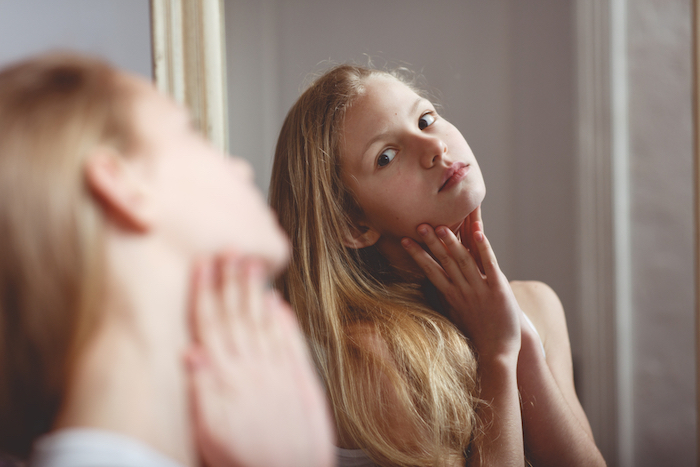LIFE
Friends
How to help a friend with an eating disorder

If you’ve been watching the Olympics this year, you’ve probably heard about how Adam Rippon, a figure skater from the United States has opened up about his battle with an eating disorder. Last year, two female figure skaters Gracie Gold and Yulia Lipnitskaya retired from the sport to get treatment for anorexia.
According to The Massachussetts Eating Disorders Association, 40 percent of teen girls have an eating disorder. Chances are you know someone who is affected by this. Are you afraid a friend is suffering from an eating disorder? Read on to learn the warning signs and the best ways you can help.
The two most common eating disorders are anorexia and bulimia. Anorexia is when a person starves her body of food because she's afraid to gain weight. Bulimia is when a person eats a lot of food and then tries to make up for eating by vomiting, fasting or exercising excessively.
The warning signs are sometimes hard to tell, especially because your friend might be hiding it or they don’t even realize that they're doing it. Here's a list of physical signs you should keep an eye our for:
+Weight loss
+Loss of periods
+Being tired
+Having no energy
+Swelling around the cheeks
+Bad breath
+Being cold even when it is warm out
Are you noticing odd personality differences in your friend? An eating disorder can cause behavioral changes, too. Watch out for these traits:
+Obsessing over food and weight
+Anxious around food
+Using food as a punishment (refusing to eat when you are stressed)
+Using food as comfort
+Feeling “out of control” around food
If you've reviewed the list and your friend checks off a few of these characteristics, it may be hard, but follow these steps to help your friend.
Be Honest
The first thing that you need to do is to be honest and open with your friend, be straight with them, but don’t blame them for their problem. It’s an illness that warps a person’s perception of their body image. Eating disorders come with anxiety, depression, denial and shame, your friend might be too embarrassed to talk about their problem or feel attacked.
Be a Friend
Try to be a good healthy role model by eating right and also being accepting of your own flaws, to show them self-love. Show your friend that you love them by complimenting things you like about them. It's what is in the inside that counts.
Get Help
Your friend might make you promise that you won’t tell anyone and they’ll stop, but you don’t want to wait until it’s too late. Tell an adult like a parent or a school counselor. It hurts breaking a promise, but it will hurt more seeing your friend sick. Treatment takes a long time, so be understanding of your friend and praise them for getting help.
Always Remember
Being a good friend is the best way to support your friend while recovering. It’s important to stay positive with them and patient when they’re getting help. They aren’t their eating disorder, even if it changes them.
If you or a friend has an eating disorder, please get help. Call The National Eating Disorders Association hotline at 1-800-931-2237.
POSTED IN LIFE, Friends, eating disorder

 become a contributor
become a contributor


















